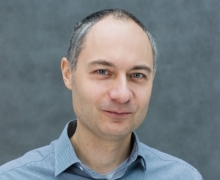BioPhage


- Acronym: BioPhage
- Institution: CEITEC MU
- Investor: European Commision
- Project type: ERC Consolidator Grant
- Implementation period: 1/1/2023–31/12/2027
- Budget: 1 992 976 EUR
- Project website: www.muni.cz/en/research/projects/66498
Project description:
In 2017, the World Health Organization declared Staphylococcus aureus to be an antibioticresistant pathogen for which new therapeutics are urgently needed. Upon infection, S. aureus forms biofilms that can only be treated by the long-term application of several antibiotics in high doses or the surgical removal of the infected tissues. An alternative approach, phage therapy, has not been approved for clinical use, because the effects of phage infection on a biofilm are not sufficiently characterized.
We propose to study the dynamics of the propagation of Herelleviridae phage phi812 in a S. aureus biofilm and molecular details of phi812 replication in a cell. We integrated a microfluidic system into a light-sheet microscope to enable continuous multi-day observation of the phage infection of a biofilm. We will determine how sub-populations of metabolically dormant or phageresistant cells in a biofilm provide herd immunity against phi812 infection. Our system enables the fixation of biofilm segments for subsequent correlative imaging by serial block-face scanning electron microscopy to identify the interactions of phages with bacterial cells. We will use focused ion beam milling together with cryo-electron microscopy and tomography to determine highresolution structures of previously uncharacterized phi812 replication and assembly intermediates in S. aureus cells. We will study the function of bacterial membranes and macromolecular complexes in the initiation and completion of phage genome delivery, the assembly of phage portal complexes and heads, and the mechanisms of genome packaging and head-tail attachment.
This proposal’s biological significance lies in its focus on the as-yet uncharacterized interactions of phages and bacteria under biologically and clinically relevant conditions. Our analyses of phage spread in a biofilm, herd immunity against phage infection, and phage replication in cells may identify approaches for making phage therapy more effective
Grant holder:
Phone: +420 54949 7756


 Share
Share
